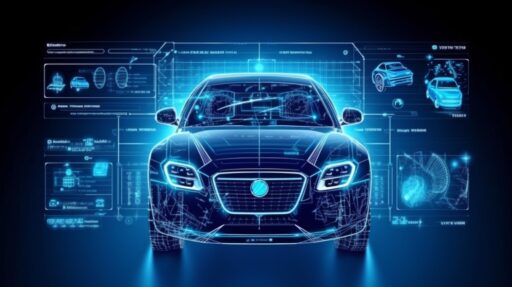
A recent industry analysis has sounded the alarm about the automotive sector being on the brink of a technological revolution.
James Edmondson, research director at consulting firm IDTechEx, emphasized in a newly released report the unprecedented changes sweeping through the auto industry. With the rise of electrification, autonomous driving, and the emergence of software-defined vehicles, the role of technology firms in this new era is a pressing question.
According to IDTechEx’s report titled “Electric Vehicles: Land, Sea, and Air 2024-2044,” electric vehicles (EVs), including hybrids, are rapidly becoming the standard. In 2023 alone, over 23% of newly registered cars were electric, with pure battery-electric vehicles experiencing a nearly five-fold increase since 2020.
Moreover, autonomous driving features are gaining traction, with Level 2 autonomous vehicles now commonplace and Level 3 vehicles hitting the roads. The shift towards software-defined vehicles, which can receive over-the-air updates and offer new feature subscriptions, is creating fresh revenue streams for automotive manufacturers. IDTechEx forecasts software-related revenues to surpass US$700 billion by 2034.
Edmondson noted that the automotive industry has historically been slow to adapt due to lengthy development cycles and heavy reliance on tier 1 and 2 suppliers. However, this is changing rapidly, exemplified by Tesla’s disruptive approach to mass-producing electric cars and revolutionizing car buying and ownership.
“These innovative approaches are permeating the industry, offering technology companies ample opportunities to leave their mark,” Edmondson stated.
Partnerships between tech giants and automotive companies are also on the rise. For instance, in late 2023, Hyundai and Amazon joined forces to sell cars on Amazon.com. Similarly, Sony collaborated with Honda in 2022 to integrate Sony’s expertise in AI, entertainment, and augmented reality into the automotive world.
Edmondson posed a thought-provoking question: as the automotive industry shifts towards electrification, could tech companies go beyond providing infotainment systems and start producing vehicles themselves?
While merging the automotive and technology sectors presents challenges, especially for smaller startups aiming to scale up production, well-funded tech giants like Huawei, Foxconn, and Xiaomi are poised to overcome these obstacles. Huawei is working with Chinese automotive OEMs to develop car technology and produce electric vehicle drive units. Foxconn, renowned for manufacturing Apple’s iPhones, has ventured into electric car production with aspirations to capture 5% of the global EV market. Meanwhile, Xiaomi unveiled its first electric car at the end of 2023, aiming to become a major player in the global automotive industry.
In light of these developments, Edmondson believes the reality will likely lie somewhere between traditional automakers developing the necessary technology and tech companies acquiring the manufacturing expertise needed for the automotive mass market. One thing is certain: the automotive market is on the brink of a massive evolution, with significant challenges ahead.
